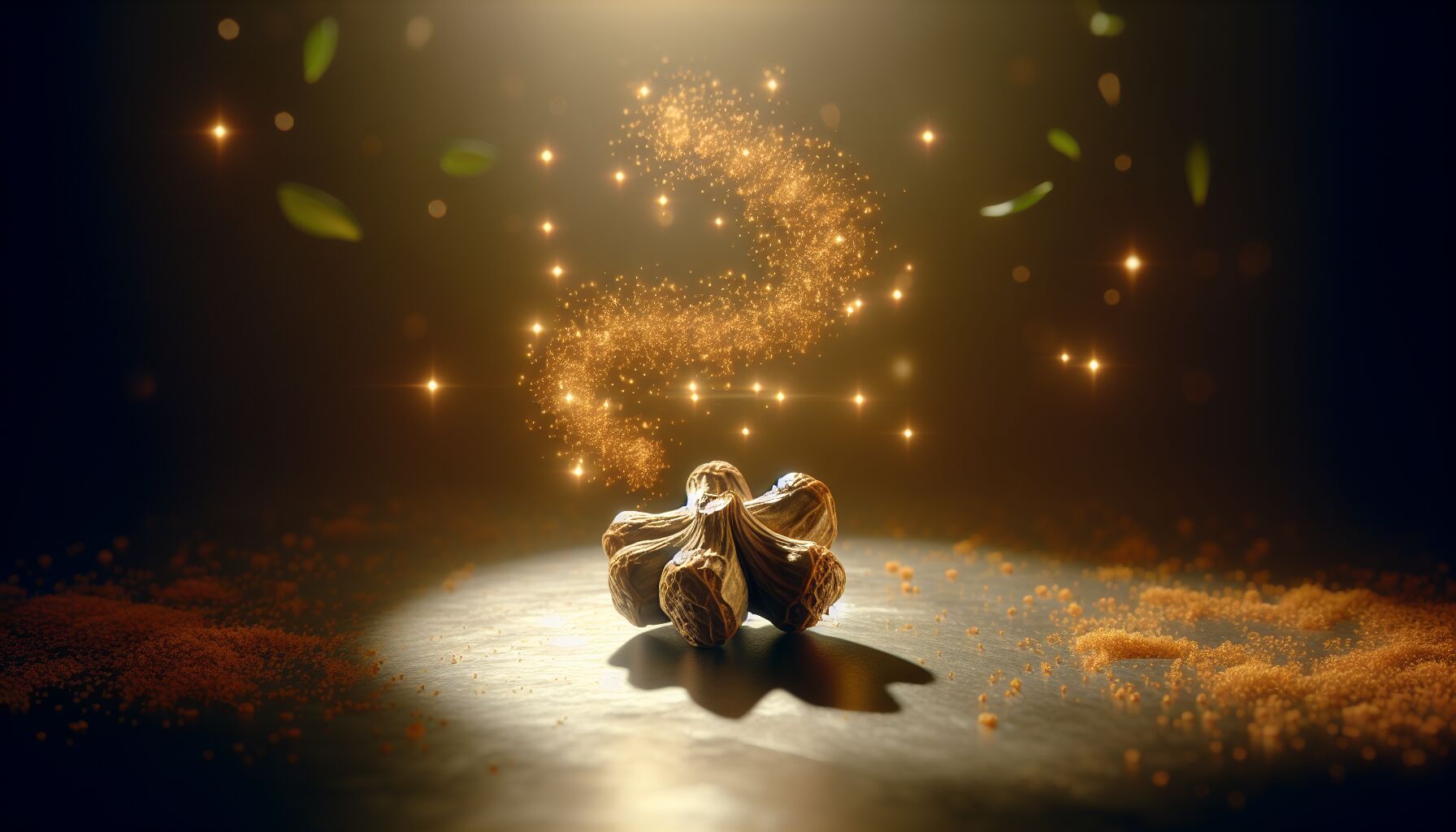 Clove has been an ally to humankind long before recorded history, nestled in the annals of traditional medicine across multiple cultures. Whispered tales of its potent effects have traversed generations, leaving fragrant echoes of wisdom that are still relevant today. You’re likely curious how these aromatic gems became trusted components in the healer’s toolkit.
Clove has been an ally to humankind long before recorded history, nestled in the annals of traditional medicine across multiple cultures. Whispered tales of its potent effects have traversed generations, leaving fragrant echoes of wisdom that are still relevant today. You’re likely curious how these aromatic gems became trusted components in the healer’s toolkit.
Imagine ancient gardens where Egyptian, Chinese, and Indian practitioners wandered, observing nature’s medicinal bounty. These wise ancestors recognized clove not merely for its culinary versatility but for its profound healing properties. With their holistic approach, clove was esteemed as more than just a spice—it was a source of balance and well-being. “The physician treats, but nature heals,” said Hippocrates, and clove was one of nature’s offerings.
In the bustling marketplaces of China, clove was a prized possession. Mandarins, officials of a high standing, would discreetly chew on clove sticks before engaging in formal speech. Its pungent aroma masked unfavorable odors, but more importantly, it protected oral health through its natural antibacterial and antiviral properties. You could say clove was their secret weapon for eloquence and wellness.
Meanwhile, over in India, Ayurveda wove clove into its tapestry of natural remedies. It was utilized to bolster digestion, offer pain relief, and even as a calming agent. Clove’s fiery warmth was believed to energize digestion—an essential element in maintaining balance for the doshas, the Ayurvedic body-mind types. Its subtle yet powerful impact in these ancient systems of healing underscores a comprehensive understanding of the human body’s interconnectedness with nature.
Clove also found esteemed recognition in the 16th century by the Portuguese, who sought after it fervently during their spice excursions. Why? Clove’s capabilities weren’t just in preserving food but in preserving health. This historical spice facilitated a formidable trade industry that, fundamentally, was a trade of sustenance and life.
Although centuries have rolled on, the inherent properties of clove—the kind that ancient healers trusted—remain unchanged. Today, we see a resurgence in its use as part of a collective journey back to natural, time-honored practices. It’s not merely nostalgia; it’s a realization that these traditional uses hold irrefutable value in our modern lives.
Let’s delve deeper into the rich history clove brings to our tables and medicine cabinets, connecting past wisdom with present realities—and perhaps even aiding us in our quest for authenticity and health in a fast-paced, often impersonal world. What nuggets of ancestral insight might clove hold for you?
The science behind clove’s pain-relieving properties
 Clove, with its familiar spicy warmth, isn’t just a fragrant culinary delight. It’s a testament to nature’s remarkable pharmacy, particularly when it comes to pain relief. But what makes clove such an effective ally against pain? Here’s the thing—it’s all about a compound called eugenol.
Clove, with its familiar spicy warmth, isn’t just a fragrant culinary delight. It’s a testament to nature’s remarkable pharmacy, particularly when it comes to pain relief. But what makes clove such an effective ally against pain? Here’s the thing—it’s all about a compound called eugenol.
Eugenol, clove’s most significant constituent, behaves as a natural anesthetic and analgesic. You’ve experienced that, right? When your dentist swabs your gums with clove oil before a procedure, it’s eugenol soothing your nerves. This compound puts on quite the performance by numbing pain temporarily, making it a popular choice for alleviating the throbbing discomfort of a toothache. Feeling curious about its mechanism of action? Imagine eugenol as a gentle guardian, blocking the conduction of nerve signals that communicate pain. That straightforward intervention provides much-needed relief from discomfort—no complex chemistry degree needed to appreciate its elegance.
Now, for those who relish hard science, studies have showcased clove’s potent antibacterial properties, lending significant support to oral health. By disrupting bacterial cell walls, eugenol helps prevent and manage infections within the mouth—an area particularly prone to bacterial overgrowth. Isn’t it fascinating how a tiny clove can hold so much potential? Our bodies seem to agree.
And it doesn’t stop there. Clove’s contributions aren’t all direct; they also engage in indirect support systems. For instance, clove oil’s anti-inflammatory properties work behind the scenes to reduce swelling, a frequent companion of pain. When you ponder these dual abilities—pain relief and inflammation reduction—it’s not hard to see why clove has earned its place in the apothecaries of healers past and present.
Here’s a thought to hold onto: we live in a world where natural health solutions deserve attention. Isn’t it comforting to know that something as humble as clove can deliver such a powerful impact? It’s like listening to a comforting story retold through the generations—reliable, soothing, and undeniably effective. For those seeking a more mindful interaction with the natural world, embracing clove is a small but meaningful step. As Ralph Waldo Emerson said, “The creation of a thousand forests is in one acorn,” and indeed, the healing of many lies within one clove.
For further reading and validation, refer to this study on clove’s properties and its application in NCBI’s extensive database. Moreover, for those intrigued by natural therapies and their integration into conventional medicine, resources from the National Institutes of Health provide a treasure trove of information.
Clove as a potent source of antioxidants
 Inside the tiny, aromatic clove lies a world of powerful antioxidants—nature’s champions fighting against the oxidative stress that takes a toll on our bodies and minds. When we pause to consider this humble spice, it emerges as more than an ingredient; it’s a guardian of our health. Let me explain why that matters.
Inside the tiny, aromatic clove lies a world of powerful antioxidants—nature’s champions fighting against the oxidative stress that takes a toll on our bodies and minds. When we pause to consider this humble spice, it emerges as more than an ingredient; it’s a guardian of our health. Let me explain why that matters.
Oxidative stress might sound like a complex concept, but it’s simply the imbalance between free radicals and antioxidants in your body. Free radicals, those pesky, unstable atoms, can lead to cell damage. Yet nature, in its infinite wisdom, offers us clove—a powerful antidote. Packed densely with antioxidants like polyphenols, clove stands on the frontline, combating the chaotic dance of free radicals.
So, what’s in it for you? Those antioxidants in clove aren’t just scientific terms; they’re crucial bodyguards that could improve health in profound ways. Considering how modern life often exposes us to pollution, processed foods, and stress—all triggers for free radicals—integrating clove into your routine becomes invaluable. This isn’t just about the spice cabinet; it’s about a tangible, everyday guardian.
Bien-être’s natural gamut offers respite, and clove, known for its fiery warmth, becomes an even more essential player when we understand it through this lens. Researchers from trusted sources like the National Institutes of Health emphasize the importance of antioxidants in preventing chronic diseases like heart disease, which is just one reason why clove’s robust capabilities deserve our respect.
Then there’s the mental clarity point. When oxidative stress is less of a burden, we might notice sharper focus and a better mood. It’s like that first crisp morning breath—not a cure-all but a gentle nudge towards better health. Are you wondering about practical applications? Besides consuming it as a spice, clove oil can be diluted and used in aromatherapy, introducing antioxidants directly and subtly through scent.
As we explore the wonders within clove, it’s hard not to recall the intertwining of all life. Like how an intricate dance of bees and flowers sustains an ecosystem, clove stands in a timeless circle of care for our well-being. Isn’t it comforting to know that something as small and unassuming as a clove can carry such profound benefits? It resonates as a gentle reminder from nature, inviting us to embrace the interconnectedness of life for personal rejuvenation.
For the curious souls ready to deepen this connection, resources such as NCBI’s research articles can provide further insights into how these antioxidants within clove work. These tidbits of knowledge might not just nurture your intellectual curiosity but may encourage a healthier lifestyle, one mindful spice at a time. As Albert Einstein mused, “Look deep into nature, and then you will understand everything better.”
 DS Haven In Light Of Things
DS Haven In Light Of Things






